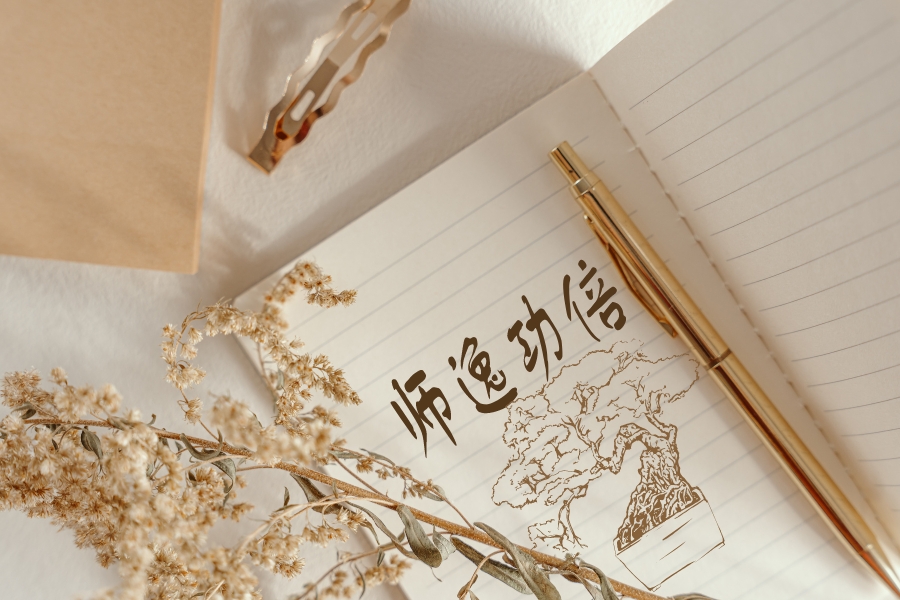The Japanese language enchants like a gentle breeze, doesn’t it? The combination of words and paint makes a picture, tells a story, and takes you somewhere else entirely. Aesthetic Japanese Words, in particular, hold a special place in this linguistic landscape.
Table of Contents
Imagine words that capture the fleeting beauty of cherry blossoms or the serene calm of a Zen garden. These are more than just lyrics; they’re an emotional and intellectual journey set to music. The allure of Japanese culture, including its language and art, will be explored in this blog.
This post is for anyone interested in languages, Japan, or the lyrical expressions that may be found in the Land of the Rising Sun. We’ll delve into a wide range of dreamy, summery, complimentary, and other terms. Let’s get comfortable with some green tea and a linguistic adventure. together!
Japanese Aesthetic
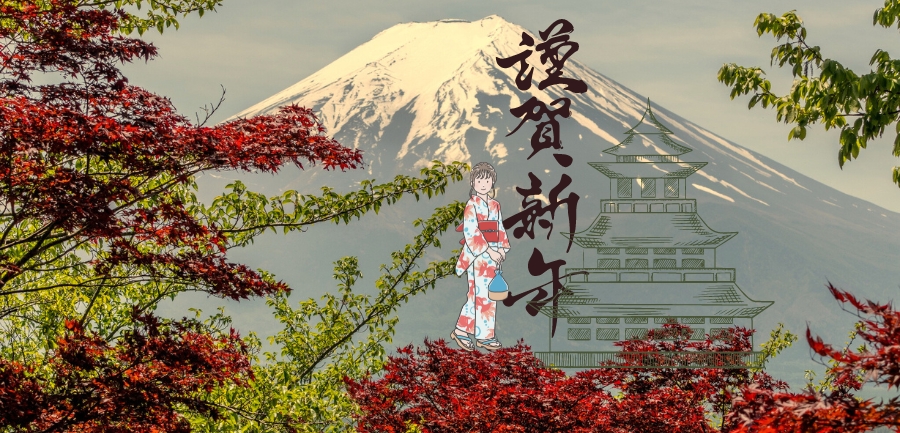
Japanese aesthetics is a world filled with grace, simplicity, and profound beauty. Let’s explore this fascinating realm.
Understanding Aesthetic in Japanese Culture
The philosophy behind Japanese aesthetics goes beyond mere appearance. It’s a celebration of the subtle, the understated, and the natural. Here’s how it permeates various aspects of Japanese life:
- Language: Japanese words often carry deep aesthetic meanings, reflecting cultural values and emotions.
- Art: From traditional calligraphy to modern design, aesthetics shapes the visual arts in Japan.
- Daily Life: Whether it’s the elegance of a tea ceremony or the harmony of a Zen garden, aesthetics infuses everyday experiences.
Japanese aesthetics invites us to appreciate the beauty in simplicity and find joy in the ordinary. It’s not just about what’s pleasing to the eye; it’s a way of life that resonates with the soul.
Dreamy in Japanese – Words that Captivate
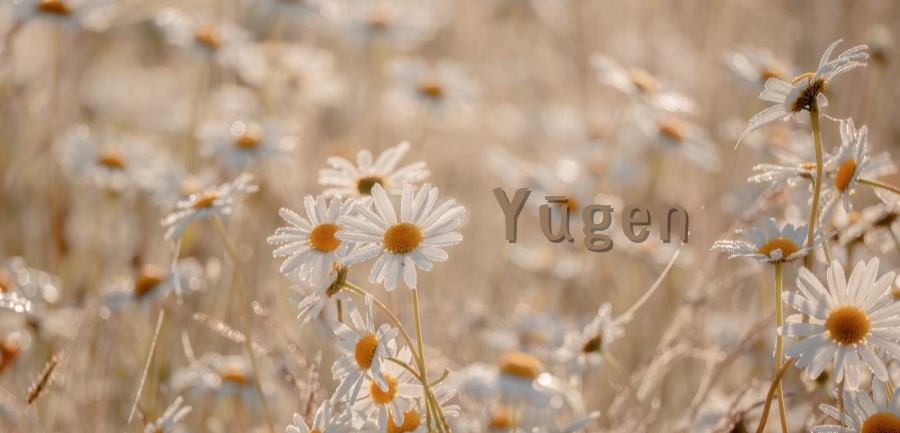
In the Japanese language, some words seem to transport you to a dreamlike realm. They evoke feelings, paint pictures, and captivate the imagination. Here’s what makes them so special:
- Poetic Expressions: Words like “Yūgen” (mysterious beauty) and “Komorebi” (sunlight filtering through leaves) are not mere descriptions; they’re poetic imagery.
- Literary and Artistic Inspiration: These dreamy words inspire literature, poetry, and visual arts, adding depth and emotion to creative works.
Imagine a word that feels like a gentle whisper or a soft caress. That’s the power of dreamy words in Japanese. They’re more than sounds; they’re experiences that stir the soul and enrich the language.
Seasonal Beauty – Summer Words Aesthetic in Japanese

In Japan, the four seasons represent a kind of cultural dance that honors the natural rhythms of existence. Each season has its own beauty, emotions, and phrases that capture it. Explore summer’s bright Japanese aesthetics.
The Significance of Seasons in Japanese Culture
Japan’s four seasons are deeply ingrained in its cultural fabric. Each season is honored and commemorated with special events, delicacies, works of art, and literature. Here’s why seasons hold such significance:
- Cultural Connection: Seasons are linked to traditional festivals, rituals, and customs, each with its unique symbolism and celebration.
- Artistic Inspiration: Artists and poets draw from the beauty of each season, creating works that resonate with nature’s cycles.
- Linguistic Beauty: Japanese language has specific words and phrases that reflect seasonal changes, adding richness to daily communication.
There is a specific place in this seasonal tapestry for summer.
A Focus on Words that Capture the Essence of Summer
Warmth, vigor, and buoyancy are the defining characteristics of the Japanese summer. It’s the time of year for celebrations, fireworks, and sunflowers coming into bloom. And the language captures this vibrant energy through aesthetic words that evoke the essence of summer:
- “Natsu” (夏): The word for summer itself, representing the season’s warmth and liveliness.
- “Fūrin” (風鈴): Wind chimes, a symbol of summer’s gentle breezes and soothing sounds.
- “Hanabi” (花火): Fireworks, capturing the joy and excitement of summer festivals.
These words are more than merely descriptive; they are experiences, memories, and sentiments wrapped up in sound. They allow us to taste the sweetness of a summer fruit, feel the coolness of a shaded stream, and hear the laughter of a summer festival.
So next time you find yourself enjoying a summer day, think of these beautiful Japanese words. They serve as a gentle reminder to take in the splendor of the season, to focus on the here and now, and to seek pleasure in the summer’s more straightforward luxuries.
Expressing Emotions and Compliments in Japanese

Emotions are the universal language of the human soul, and when expressed in Japanese, they take on a form that is both distinctive and graceful. Whether it’s a compliment that comes from the deepest part of one’s heart or a word that just makes you happy, language gives excellent ways for people to communicate their feelings. Let’s have a look at how precisely something like that works.
Saying “You’re Beautiful” in Japanese
Complimenting someone’s beauty in Japanese is more than just finding the right words; it’s about understanding the context, the relationship, and the cultural nuances. Here’s how you can express this lovely compliment:
- “Utsukushii” (美しい): A common way to say “beautiful,” often used to compliment a woman’s appearance.
- “Kirei” (綺麗): Meaning “pretty” or “clean,” this word can be used for both people and objects.
- Cultural Considerations: In Japan, compliments are often received with humility, and the response might be a polite denial. Understanding this cultural aspect adds depth to the interaction.
Whether you’re admiring a friend’s outfit or a stranger’s smile, knowing how to say “you’re beautiful” in Japanese allows you to connect and share positivity.
Happy Japanese Words – A Linguistic Smile
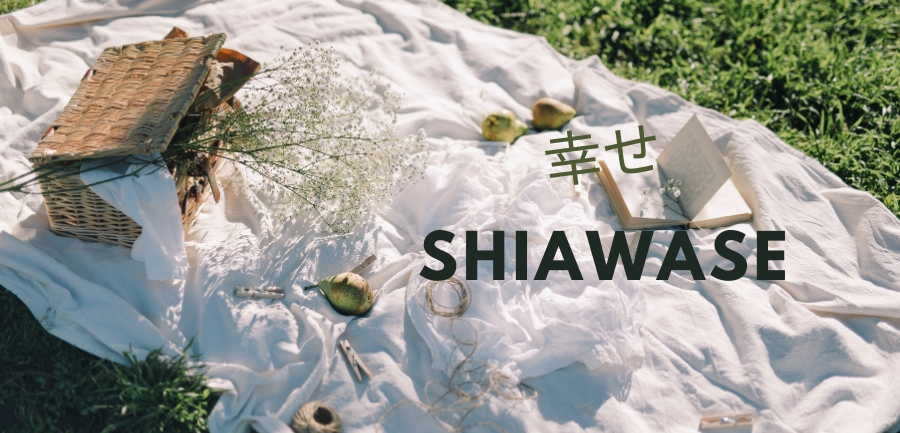
Happiness shines through the Japanese language in words that sparkle with joy, warmth, and positivity. Here’s a glimpse into some words that convey happiness:
- “Shiawase” (幸せ): Meaning happiness or good fortune, this word embodies a deep sense of contentment.
- “Yorokobu” (喜ぶ): A verb that means to be delighted or pleased, often used to express joy in a moment or event.
- “Tanoshii” (楽しい): Meaning fun or enjoyable, this word captures the lighter, playful side of happiness.
Expressions of happiness and optimism in speech, writing, and the mind rely heavily on these words. They’re a good reminder that language reveals more than just what we think and believe and the ties we share with others; it also reveals how we feel.
Words of Peace and New Beginnings in Japanese
There are both peaceful and turbulent times along the path of life. Words that ring with calm, tranquility, and fresh starts find exquisite expression in Japanese for these common experiences. Let’s delve into these enchanting linguistic gems.
Japanese for Tranquility – A Peaceful Vocabulary

In the hustle and bustle of modern life, the quest for tranquility is a common longing. The Japanese language offers a peaceful vocabulary that connects with the soul:
- “Heiwa” (平和): Meaning peace or harmony, often used to describe a state of calm in relationships or society.
- “Seijaku” (静寂): Silence or stillness, reflecting a deeper, spiritual sense of peace.
- Connection to Zen Practices: Words like “Satori” (enlightenment) and “Zazen” (seated meditation) are rooted in Zen Buddhism, symbolizing inner peace and mindfulness.
These words are not just expressions; they’re pathways to understanding the Japanese approach to tranquility, deeply influenced by Zen practices and the appreciation of nature’s quiet beauty.
Embracing New Beginning in the Japanese Language
Life is a series of new beginnings, and in Japanese, these fresh starts are captured in words and phrases that inspire and motivate:
- “Hajimari” (始まり): Meaning the beginning or start, often used to mark the onset of something new.
- “Atarashii” (新しい): Meaning new or fresh, reflecting a sense of renewal and optimism.
- Cultural Symbolism: In Japan, new beginnings are celebrated in ceremonies like the entrance to school or work, symbolizing growth and transition.
These words for new beginnings are more than mere language; they’re a reflection of the cultural values that honor growth, change, and the continuous journey of self-discovery.
Whether it’s the calm serenity of a Zen garden or the hopeful promise of a new day, these Japanese words offer a linguistic embrace of life’s beautiful moments. They remind us to find peace in the present and to welcome new beginnings with open hearts.
List of Aesthetic Japanese Words

The Japanese language contains a wealth of evocative, aesthetically pleasing terms. All the way from the soothing caress of a summer breeze to the timeless wisdom of ancient philosophies, Japan’s cultural heritage is shown through these words.
An extensive table of carefully chosen beautiful Japanese words is provided below. They range in subject from the required keywords to the history of the name “Sora,” and beyond.
| Japanese Word | English Meaning | Cultural Context |
| 空 (Sora) | Sky | Symbolizes freedom and endless possibilities |
| 夏 (Natsu) | Summer | Represents warmth and vitality |
| 美しい (Utsukushii) | Beautiful | A common compliment for appearance |
| 幸せ (Shiawase) | Happiness | Conveys deep contentment and joy |
| 静寂 (Seijaku) | Silence | Reflects spiritual peace and stillness |
| 始まり (Hajimari) | Beginning | Marks the onset of something new |
| 風鈴 (Fūrin) | Wind Chimes | Symbol of summer’s gentle breezes |
| 花火 (Hanabi) | Fireworks | Captures the joy of summer festivals |
| 綺麗 (Kirei) | Pretty | Used for both people and objects |
| 喜ぶ (Yorokobu) | To be delighted | Expresses joy and pleasure |
| 楽しい (Tanoshii) | Fun | Reflects enjoyment and playfulness |
| 平和 (Heiwa) | Peace | Describes harmony in relationships or society |
| 新しい (Atarashii) | New | Reflects renewal and optimism |
| 美 (Bi) | Beauty | Often used in artistic contexts |
| 森林浴 (Shinrinyoku) | Forest Bathing | Connection with nature and well-being |
| 雨 (Ame) | Rain | Symbolizes life’s transient nature |
| 月 (Tsuki) | Moon | Represents beauty and impermanence |
| 春 (Haru) | Spring | Symbolizes renewal and fresh beginnings |
| 秋 (Aki) | Autumn | Reflects maturity and deepening beauty |
| 冬 (Fuyu) | Winter | Represents stillness and introspection |
These words are more than mere translations; they convey nuanced emotions, concepts, and aesthetics. They encourage us to view the world from a different perspective, to notice the subtleties of daily life, and to connect with others through our stories.
Whether you’re a language enthusiast or simply curious about the poetic expressions found in the Land of the Rising Sun, these aesthetic Japanese words offer a rich and inspiring linguistic journey.
To Wrap It Up
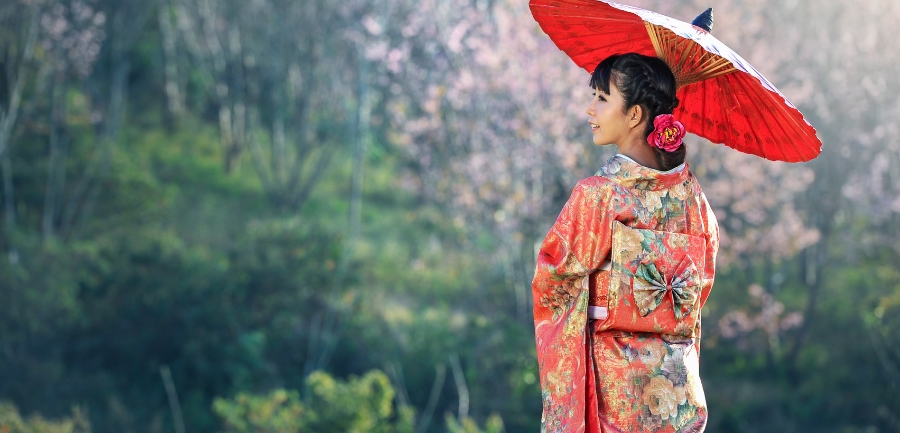
The elegance of Japanese extends much beyond a simple translation, touching on timeless truths about the human condition. The tranquility of a Zen garden or the exuberance of a summer festival can both be poetic and profound windows into the rich troves of tradition, philosophy, and art that make up a culture.
We hope that this investigation encourages you to learn more, develop a keener eye for nuance, and see the beauty in the diversity of aesthetic expression. Whether you’re a linguist, an artist, or simply a curious soul, the world of aesthetic Japanese words awaits your discovery.
FAQs
What is a cute Japanese word?
“Kawaii” (可愛い) is a cute Japanese word, often used to describe something as adorable or charming.
What Yugen means?
“Yugen” (幽玄) is a Japanese concept that means a profound, mysterious sense of beauty in the universe, often evoking feelings of awe and wonder.
What is a cool Japanese word with a deep meaning?
“Wabi-sabi” (侘寂) is a cool Japanese word with a deep meaning, representing the appreciation of the beauty in imperfection and the natural cycle of growth and decay.
What is the Japanese word for beautiful?
“Utsukushii” (美しい) is the Japanese word for beautiful, commonly used to compliment appearance or describe something aesthetically pleasing.

